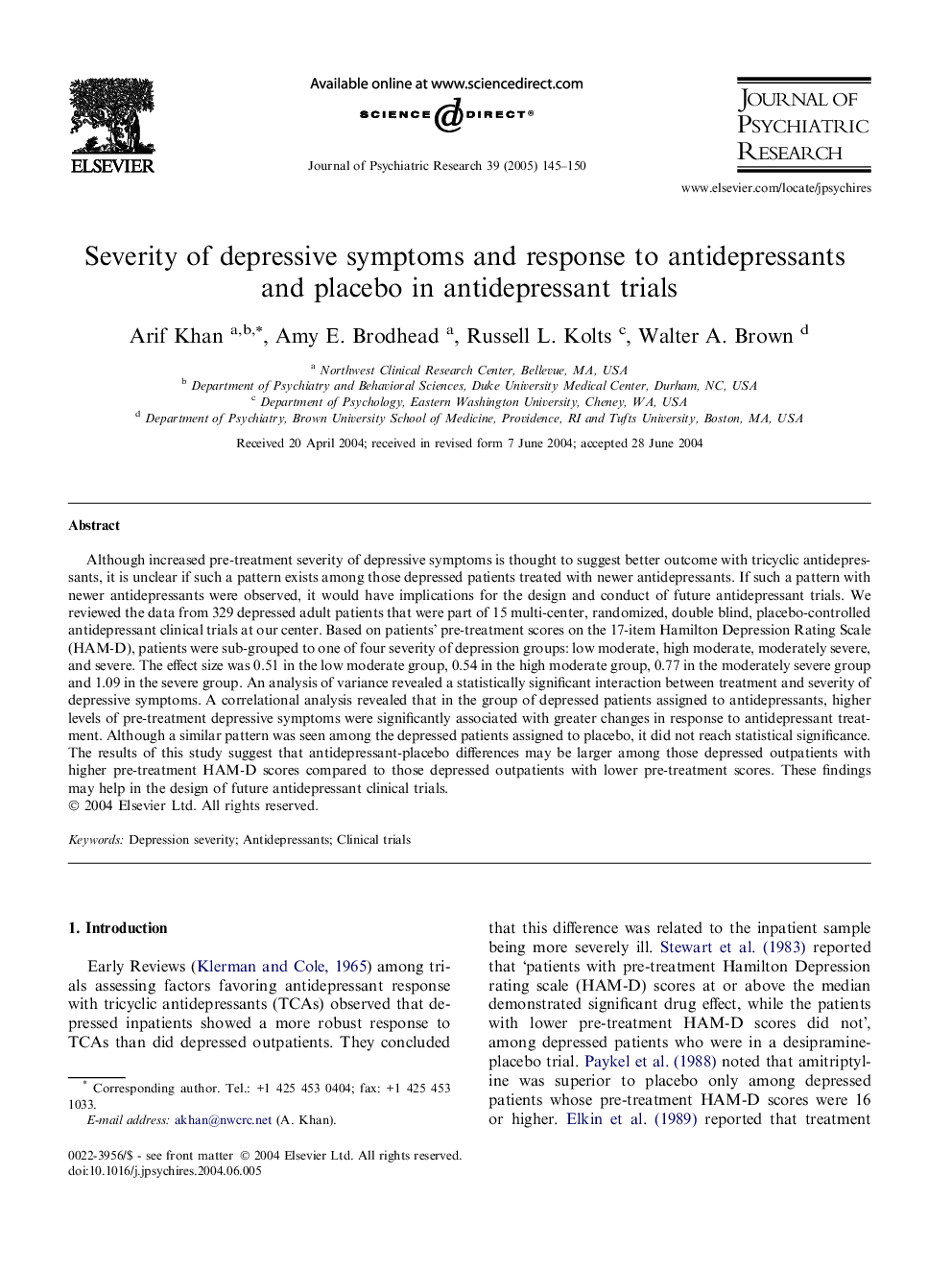| Article ID | Journal | Published Year | Pages | File Type |
|---|---|---|---|---|
| 10302013 | Journal of Psychiatric Research | 2005 | 6 Pages |
Abstract
Although increased pre-treatment severity of depressive symptoms is thought to suggest better outcome with tricyclic antidepressants, it is unclear if such a pattern exists among those depressed patients treated with newer antidepressants. If such a pattern with newer antidepressants were observed, it would have implications for the design and conduct of future antidepressant trials. We reviewed the data from 329 depressed adult patients that were part of 15 multi-center, randomized, double blind, placebo-controlled antidepressant clinical trials at our center. Based on patients' pre-treatment scores on the 17-item Hamilton Depression Rating Scale (HAM-D), patients were sub-grouped to one of four severity of depression groups: low moderate, high moderate, moderately severe, and severe. The effect size was 0.51 in the low moderate group, 0.54 in the high moderate group, 0.77 in the moderately severe group and 1.09 in the severe group. An analysis of variance revealed a statistically significant interaction between treatment and severity of depressive symptoms. A correlational analysis revealed that in the group of depressed patients assigned to antidepressants, higher levels of pre-treatment depressive symptoms were significantly associated with greater changes in response to antidepressant treatment. Although a similar pattern was seen among the depressed patients assigned to placebo, it did not reach statistical significance. The results of this study suggest that antidepressant-placebo differences may be larger among those depressed outpatients with higher pre-treatment HAM-D scores compared to those depressed outpatients with lower pre-treatment scores. These findings may help in the design of future antidepressant clinical trials.
Related Topics
Life Sciences
Neuroscience
Biological Psychiatry
Authors
Arif Khan, Amy E. Brodhead, Russell L. Kolts, Walter A. Brown,
